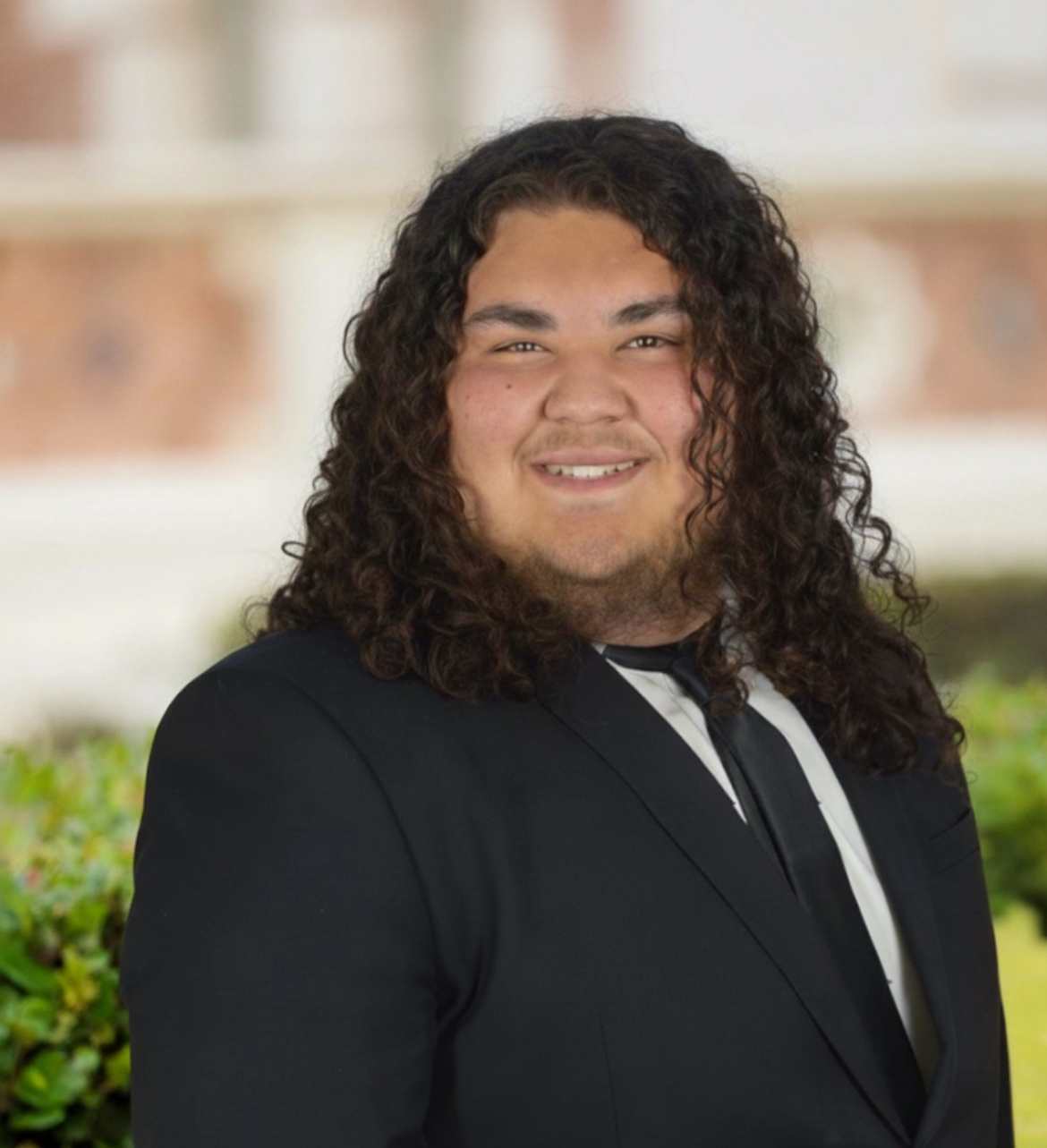Honors Students FAQ
Admissions & Eligibility
You have to have either a Cumulative College GPA of 3.5 or higher or a Cumulative High School GPA of 3.75 or higher. If you do not meet these requirements, you might still be able to join if you get a recommendation from an LPC instructor or a high school counselor, though there is no guarantee and your GPA has to be no less than 3.0 in college or 3.25 in high school.
You can participate in the LPC Honors Program and take some of your courses as Honors. However, you will not be able to use any of the transfer agreements like UCLA TAP, unless you stay at LPC for at least a year after high-school. “Transfer priority agreements" are specifically designed for community college transfer students who were not able for various reasons to go into a 4-year-university right after high-school, even though they have the potential. That means you MUST be a transfer student to qualify for a transfer agreement. Still taking some Honors courses will help boost your college applications and demonstrate academic rigor even if you are not eligible for UCLA TAP or other transfer agreements. It might help you to use a transfer agreement if you do stay for another year in LPC after graduating high school, but be advised that it is more difficult to complete the Honors Program in one-year, and one-transfer students’ chances are much lower than two-year.
Unfortunately, due to the limited number of spaces available in the Honors program, we can't accept everyone; thus, some qualified applicants are put on the waitlist. Admission from the waitlist is on a first-come, first-served basis, as spots become available.
Spots can become available anytime, but most likely after the next semester schedule is up, once we know how many Honors sections we have to accommodate more students. Spots might become available also when grades are due, because some students might be dropped out of the program due to low GPA.
We would recommend coming to the club meetings. The club is for everyone; you don't have to be in the program, and you can learn about the resources and the program beforehand. The club info is available on the Honors Program website:
There is a way to take Honors courses if you are on the waitlist: taking full Honors sections. However, people in the Honors program will have priority in registering for the full Honors sections, but if there is still space available, waitlisted students may enroll in those sections. If you are interested, please contact our Honors Director so they know you are interested in enrolling in an Honors section.
Honors Courses & Requirements
Only Honors courses through contracts or embedded components are limited in the first semester. It is recommended taking no more than two Honors courses through contracts or embedded components, and only one if you are accepted conditionally with a GPA below required. However, you are not limited in how many Honors designated sections you enroll in. You can take more Honors courses through contract or embedded component later if you demonstrate success in the first semester.
You also only need 5 if you want to qualify for specific programs like TAP for UCLA, and if you want to graduate as an Honors Scholar. You will still benefit from the Program even if you don't do all 5 courses. Each course will still show as an Honors course on your transcript, and you could talk about your project/s on the application to any college; it will always make your application stand out.
You are also free to do more honors courses than the minimum requirement of 5, just keep in mind your workload and what feels manageable to you.
No. Taking Honors courses outside of your major can be useful to display versatility in your interests. However, if you’re planning to transfer into a specific major at university, it’s a good idea to complete some Honors coursework in the required classes for that major.
If you are considering applying for UCLA TAP or other transfer agreements, then it may not be possible. You would need to have 4 Honors courses and the majority of your major requirements for two majors completed by the end of Fall when you apply. This might put extra stress on you, your GPA might suffer and you might find yourself in a worse situation without the TAP certification.
If you are adamant about transferring to another university in one year, you can try to take Honors courses during the summer, but Honors courses in the summer are very limited, and there is no guarantee that a spot will be available, and only Honors-certified instructors can mentor you. And even if you get to complete the Honors program and be certified for TAP, UCLA is also less favorable to one-year transfer, the chances are much lower than for two-year transfer. You can always stay for the second year, but then you will not have too many classes left to take. It is in your best interest to plan an even schedule for two years ahead of time and invest in different things, not just classes.
That being said, even if you cannot do the whole program and get certified, enrolling in one Honors course during the Fall can provide you with important experience and will prepare you for transfer, especially if the Honors course is in your major. It might also help your application, but since you will probably be applying in the Fall, universities may not consider the honors course fully if you haven't completed it yet.
Unfortunately, you cannot take Honors Courses during the Winter Intersession. The time frame would be too short to complete the requirements of an Honors Project. The purpose of an Honors Project is to give you enough time to engage in deeper learning and research beyond that of a regular course, and with how Winter Intersession is structured, it would not be possible to take one.
For Summer, you could potentially take some Honors courses during the summer, but they are very limited, so you should not count on it. Since the Honors Program does not work in the summer you cannot submit any Honors Contracts, even if your professor approves it. You may complete an Honors course during the summer only if your professor is Honors-certified and they are offering an Honors embedded component where the contract is not required. In that case, the course could count towards your Honors requirement; however, the honors designation will not appear on your transcript until the fall semester begins.
Unfortunately, it is not possible to turn a short-term/late start course into Honors with a contract. The term is too short to develop a project of your own, that is the reason contracts are due in the beginning of the term. However, it is possible to have an Honors course for late start classes if your instructor has an Honors embedded component for the late start class, because the component means the instructor already has a plan for you. With an embedded course, due dates for any assignments will be decided by your instructor and you won’t have to submit a contract to the Honors Program Coordinator.
Yes, you can do Honors work with another Honors student. However, the final written report must be individual and different from each other. This means that the same report CANNOT be submitted for everyone. Each of you will have to submit your own project report, emphasizing your contribution to the group outcome.
If you do not complete an Honors Project successfully, it will not count towards transfer agreements or Honors Scholar. Remember that you can only drop 1 Honors Contract or Embedded Component. This means you cannot drop or fail any more Honors projects. If you are at risk of dropping or failing more than 1 Honors Project, it could result in removal from the Honors Program. However, there will be no penalty if you drop or fail a designated Honors Section. It will not count towards your failed/dropped category. If you are at risk of dropping or failing more than 1 Honors project, reach out to our Honors Director to explain your situation, but there are no guarantees that you will still be in the Honors Program. Keep in mind that the Honors Program is for students who want to challenge themselves beyond the regular curriculum. If you struggle to complete Honors projects, the Honors program may not be a good fit for you and might distract you from your irregular classwork and consequently affect your GPA.
Working with Instructors
Remember that Honors coursework requires you to be professional with your instructor and respect the time they take to meet and mentor you personally. When they agree to mentor you, it means they volunteer to dedicate their personal free time to help you. Instructors are not required to mentor Honors students. If an instructor declines to work with you, it may be because they have other obligations to fulfill and do not have that extra free time, so be understanding.
To increase the chances that your instructor would want to help you you should try to demonstrate your skills and motivation as one of the best students in their class, go to their office hours to express your interest in working with them, and propose at least a few developed ideas of what you would want to work on and make sure it connects to the material that they teach in the course.
If an instructor is not Honors Certified (i.e., they do not have an Embedded Honors Course), they might not know anything about the Honors Program. In that case prepare to explain to them how the Honors Program works and explain what you are hoping to accomplish with your Honors project.
If it is early in the semester and you really want to complete an Honors class in a specific subject, you may consider dropping the section and enrolling with a different instructor. Before doing this, it is essential to ask your new instructor if they are willing to enroll you in their class and work with you on Honors coursework. The Honors Program Canvas page has a list of Honors certified instructors in different subjects that are interested in working with Honors students.
Note: you can only turn your course into Honors if the official instructor of that course is agreeing to mentor you. You CANNOT have another faculty mentor you if the faculty is not the official instructor for the class you are enrolled in.
Transfer Agreements
The application for the UC transfer agreements opens in the fall semester of each school year. The agreement with these universities is that you have to complete 5 Honors Courses by the time you graduate. NOTE: if you plan to transfer to UCLA the 5 Honors Courses must be UC transferable. Keep in mind that LPC Honors Program does not serve UCLA TAP exclusively, so some of the Honors courses we offer might not be UC transferable and will not count for UCLA TAP.
You do not have to complete all 5 Honors courses by the time you apply, but you should be on track to complete them by the spring semester before you transfer. This means that you can have 1 honors course remaining for the spring term, but the rest must be completed or in progress of being completed by the end of the Fall term when you apply. However, having all 5 done by the end of Fall when you apply may increase your chances of being accepted compared to having one honors course remaining for institutions like UCLA or UCI. That is why it's important to sign up for Honors courses at the beginning of the term, so that there are records of you being on track.
There are also other requirements needed to be eligible for transfer agreements, such as not exceeding 1 dropped or failed Honors course, completing the community/global engagement service requirement (10 hours per year in program), completing all the required courses of your major with a grade of B or higher, and maintaining a GPA of 3.5 or higher. Still, the agreements may differ and this is why it's important to check the transfer agreements of each university, as requirements vary and each has its own benefits. The website of the list of transfer partners is linked below:
https://www.honorstransfercouncil.org/transfer-partners
If you want to transfer to one of the transfer partners listed, you must complete the LPC Request form for Honors Certification for ALL Transfer Agreements by its due date. The request is usually due in November and is only available on the LPC Honors Program Canvas. For UCLA TAP, you submit a separate TAP Applicant Letter to UCLA AFTER submitting your general application to UCLA and the LPC Request for Honors Certification for ALL Transfer Agreements form. You will also need to fill out another form in the spring to update your academic progress for UCLA TAP. Ensure not to miss it: check your emails, Canvas messages, and the Honors Program Canvas regularly for announcements.
For UCLA TAP, you should be aware of what majors are eligible to apply using UCLA TAP. Only majors within the College of Letters and Sciences (L&S) are eligible to apply for TAP, except a few exceptions - those might change from year to year. Majors that do not usually qualify would be Schools of Engineering & Applied Science, Architecture, Music, Nursing, Theatre, Film and Television. You should also be aware that you can apply for an alternate major; however, that major must also be part of the College of Letters and Sciences (L&S), and the major must not be impacted like psychology, political science, and others. This means that if a major is not part of the College of Letters and Sciences or if it is considered impacted, it cannot be used for your alternate major. For impacted majors, you must declare that major as your primary major and use a backup major that is related to your primary major as your secondary major (e.g., Primary: psychology, Alternate: Linguistics and Psychology). It's important to note that the list of impacted majors changes every year, so it's important to check the most up-to-date information on UCLA TAP's website:
It is important to meet all the admission requirements for the college and BOTH of your majors, so meet with your LPC counselor to go over the requirements for both of your majors and use ASSIST to see what courses are transferable to UCLA and other institutions that have articulation agreements with LPC.
Here is the transfer agreements website to learn more about transfer agreements:
https://www.laspositascollege.edu/honors/transfer-agreements.php
Program Involvement & Community
The Honors Transfer Program is the actual program that you must be a member of in order to take Honors courses. If a student wishes to join the program, they must apply using this form and join the Honors Program Canvas.
The Honors Club is an extension of the Honors Program that allows students to meet with other Honors students to talk about their projects and how to transfer to top universities. It is not mandatory to attend club meetings if you are part of the Honors Program, and it is not necessary to be an Honors student if you want to attend the meetings.
Community service is required of everyone to maintain the membership in the program, but it is especially important for students who want to graduate as Honors Scholars and want to participate in transfer agreements like UCLA TAP, or UC Irvine’s H2H. The requirements are as follows:
- You are required to complete 10 hours of community service per year you are in the
Honors program
- At least 6 out of the 10 hours have to be for LPC college (not necessarily for the Honors program). So that you are able to complete 4 hours of community service outside LPC college however you will be required to show proof of completion of those 4 hours.
Try to complete the majority of your community service hours before the end of FALL if you are interested in using any of the transfer agreements when you apply for colleges and universities.
A list of possible options to volunteer can be found on a special page about community service both on Canvas and on Honors Program website. New and time-sensitive opportunities to complete your community service hours will be also posted frequently on Canvas, so make sure you are on top of all the Canvas announcements.
At the end of each semester a form will open up where you indicate all of the community hours you have completed during the semester. It is important to note that you will be asked for proof of completion of those hours so please keep any documentation or photos from the events. If you are unable to provide any documentation then provide a contact who can verify your hours. The form is located with all the other forms on Honors Canvas and will open on the last day of the semester so it is your responsibility to keep track of your hours completed throughout the semester since you will submit all the hours in one submission form (Multiple submissions will not be accepted).
The Honors Mentorship Program is a program where experienced Honors students (mentors) support and guide other students by helping them navigate their courses while earning volunteering hours for the community service requirement.
To participate as an Honors mentor in the program you must have:
- 3.75+ GPA and at least 2 Honors complemented
- A Second-year Honors student in good standing
If you don't meet the requirements you can mentor international students if you speak another language. If interested, fill out this FORM. You’ll be matched with a student based on academic interests, major, and availability.
If you are a student who’s interested in having a mentor guide you through the honors process fill out this FORM (Need form link for students interested in having a mentor).







